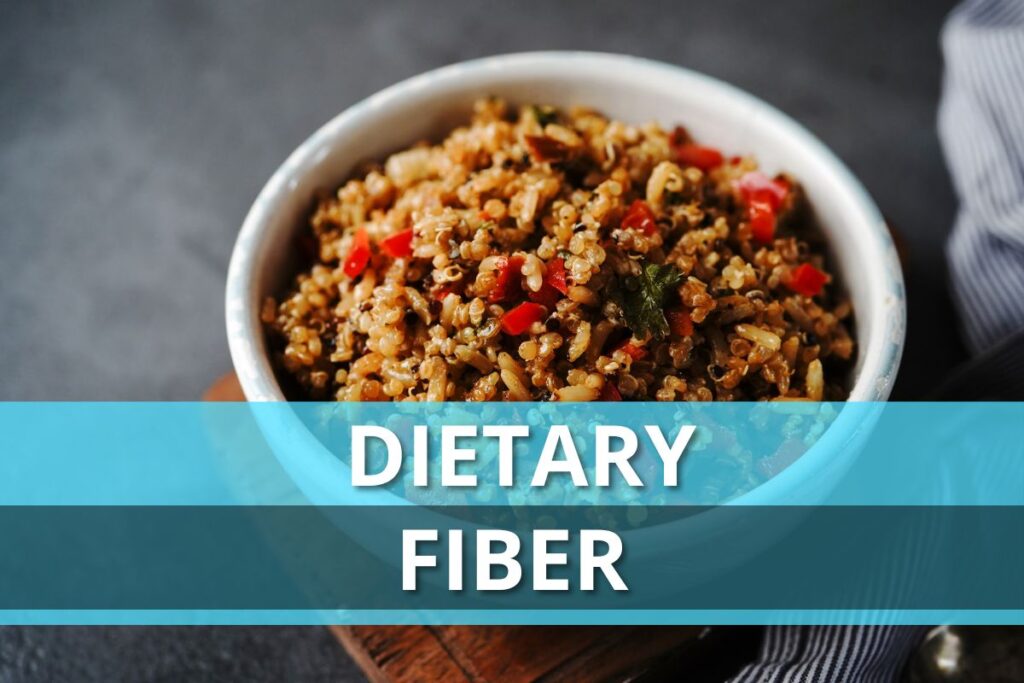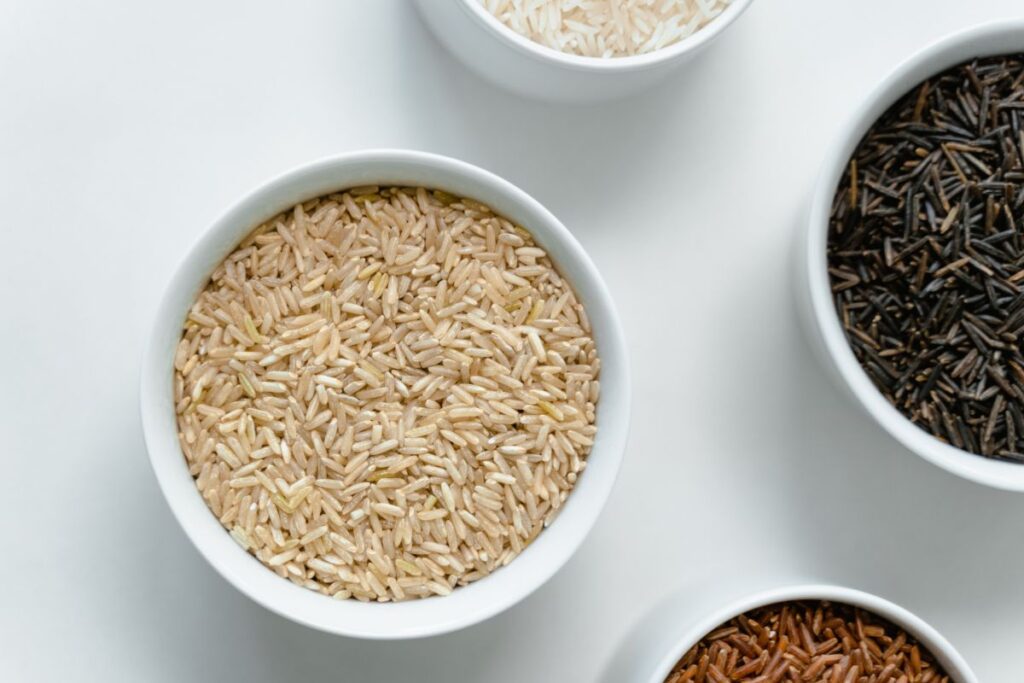Dietary Fiber
Author:
Unlock your full potential by engaging with our experts and community! Have questions about your fitness journey or looking for expert advice on weightlifting techniques? Don’t hesitate — leave a comment below and Sergii Putsov will provide a personalized answer and insights to help you reach your goals.
Torokhtiy is reader-supported. Some links are affiliate links, and we may earn a commission at no extra cost to you. See our disclosure page for details.

Dietary fiber is an indigestible carbohydrate that consists of three or more monosaccharide molecules. Fiber is not digestible by human enzymes and consists of the remains of the cell wall of plants.
It is interesting that fiber was previously considered a ballast substance and they tried to purify its diet. Today there is no doubt that this is a very necessary nutrient that has many positive effects on our health.
Fiber is divided into dietary and functional. Dietary fiber is in its natural form – as part of plant foods. Functional fiber is an isolated dietary fiber that is sold as an additive or added to food by manufacturers.
Depending on whether fiber can dissolve in water, it is classified as either soluble or insoluble.
You may like it:
Soluble fiber dissolves in water, forming a gel-like substance, and is amenable to fermentation. Insoluble fiber is poorly fermentable, but it promotes the accelerated movement of intestinal contents and also increases the volume of feces. Due to its effect, insoluble fiber helps fight constipation and irregular stools.
In general, the amount of soluble and insoluble dietary fiber varies depending on the type of product. To get the most health benefits, every day eat a variety of foods high in fiber: vegetables, fruits, legumes, grains, nuts, and seeds.
Besides the fact that dietary fiber helps fight constipation, it has many other beneficial effects:
- It supports colon health. Dietary fiber is prebiotic, that is, food for our intestinal microflora! Prebiotics act as fertilizers that stimulate the growth of healthy bacteria in the intestines. Studies also show that a high fiber diet reduces the risk of colon cancer and other cancers.
- It helps lower cholesterol. Soluble fiber contained in beans, oats, flaxseed, and oat bran, can lower total blood cholesterol by lowering low-density lipoproteins (“bad” cholesterol).
- It helps control blood sugar. Fiber, especially soluble, in people with diabetes, can slow down the rate of absorption of glucose and thus inhibit sudden spikes in blood sugar after eating. The use of soluble fiber can reduce the risk of type 2 diabetes in healthy people.
- It promotes weight loss and maintaining a healthy body weight. High fiber foods saturate and prolong satiety. In addition, most fiber-rich foods have low and moderate calories.
- High fiber foods can have heart health benefits, such as lowering blood pressure and inhibiting inflammation.

Recommended fiber intake:
- For men under the age of 50 – 38 g; over 50 – 30 g per day.
- For women under the age of 50 – 25 g; over 50 – 21 g per day.
Refined, peeled, or processed foods, such as canned fruits and vegetables, juice without pulp, white bread and pasta, and non-whole grain cereals, contain less fiber. In the process of cleaning grain, the outer shell (bran) is removed, which reduces the content of dietary fiber. For this reason, it is recommended to buy whole grain (unpeeled) cereals, bread, and pasta. It is important to know that too fast fiber increase in diet can cause increased gas formation, bloating and cramping. Increase the number of fiber in your diet gradually – within several weeks. This will allow your intestinal microflora to adapt painlessly to changes in the diet. In addition, fiber provides the best effect when we drink enough water. Therefore, when you increase the amount of fiber, you usually need to increase the amount of fluid consumed.
In the end, I’ll give some simple tips that will automatically increase the amount of fiber in your diet:
- eat vegetables, fruits, and grains every day, as well as 1-2 small servings of nuts;
- consume at least some vegetables in each main meal;
- try to choose always fruit, not juice;
- replace white rice, white bread, and noodles with brown rice, whole grain bread, and pasta;
- try to consume at least 2 servings of beans per week. You can replace meat with them.
Increase fiber intake and be healthy!
You might be interested in:
Why Trust Us?
With over 20 years in Olympic weightlifting, strength training, nutrition coaching, and general fitness our team does its best to provide the audience with ultimate support and meet the needs and requirements of advanced athletes and professional lifters, as well as people who strive to open new opportunities and develop their physical capabilities with us.
By trusting the recommendations of our certified experts in coaching, nutrition, and sports training programming, as well as scientific consultants, and physiotherapists, we provide you with thorough, well-considered, and scientifically proven content. All the information given in the articles concerning workout programming, separate exercises, and athletic performance, in general, is based on verified data.
The product testing process is described in more detail here.
Author: Sergii Putsov
Head of Sport Science, PhD
Best Results: Snatch – 165 kg,
C&J – 200 kg
Sergii Putsov, Ph.D., is a former professional weightlifter and National team member, achieving multiple medals in the 94 kg weight category at national competitions. With a Master’s degree in “Olympic & Professional Sport Training” and a Sport Science Ph.D. from the International Olympic Academy, Greece, Sergii now leads as the Head of Sport Science. He specializes in designing training programs, writing insightful blog articles, providing live commentary at international weightlifting events, and conducting educational seminars worldwide alongside Olympic weightlifting expert Oleksiy Torokhtiy.




Still have questions after reading our article? Unlock your full potential by engaging with our experts and community! Don’t hesitate — leave a comment below and Sergii Putsov will provide a personalized answer and insights to help you reach your goals.